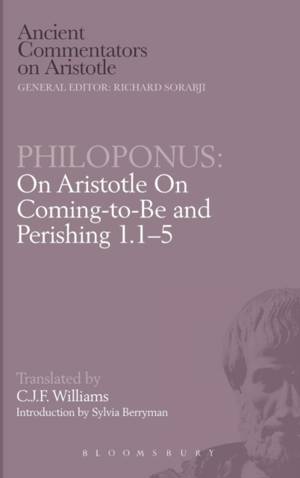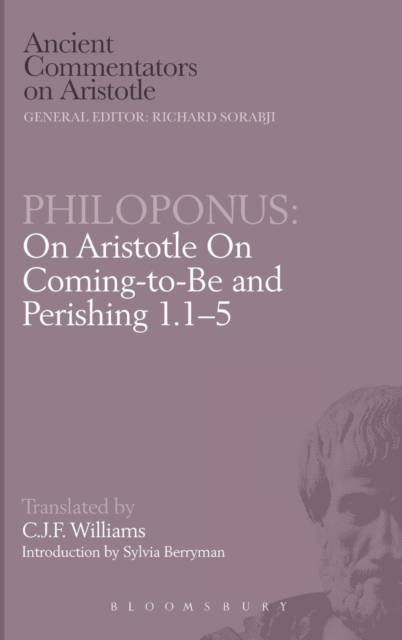
Bedankt voor het vertrouwen het afgelopen jaar! Om jou te bedanken bieden we GRATIS verzending (in België) aan op alles gedurende de hele maand januari.
- Afhalen na 1 uur in een winkel met voorraad
- In januari gratis thuislevering in België
- Ruim aanbod met 7 miljoen producten
Bedankt voor het vertrouwen het afgelopen jaar! Om jou te bedanken bieden we GRATIS verzending (in België) aan op alles gedurende de hele maand januari.
- Afhalen na 1 uur in een winkel met voorraad
- In januari gratis thuislevering in België
- Ruim aanbod met 7 miljoen producten
Zoeken
Omschrijving
The first five chapters of Aristotle's De Generatione et Corruptione distinguish creation and destruction from mere qualitative change and from growth. They include a fascinating debate about the atomists' analysis of creation and destruction as due to the rearrangement of indivisible atoms. Aristotle's rival belief in the infinite divisibility of matter is explained and defended against the atomists' powerful attack on infinite divisibility.
But what inspired Philoponus most in his commentary is the topic of organic growth. How does it take place without ingested matter getting into the same place as the growing body? And how is personal identity preserved, if our matter is always in flux, and our form depends on our matter? If we do not depend on the persistence of matter why are we not immortal? Analogous problems of identity arise also for inanimate beings.
Philoponus draws out a brief remark of Aristotle's to show that cause need not be like effect. For example, what makes something hard may be cold, not hard. This goes against a persistent philosophical prejudice, but Philoponus makes it plausible that Aristotle recognized this truth.
These topics of identity over time and the principles of causation are still matters of intense discussion.
But what inspired Philoponus most in his commentary is the topic of organic growth. How does it take place without ingested matter getting into the same place as the growing body? And how is personal identity preserved, if our matter is always in flux, and our form depends on our matter? If we do not depend on the persistence of matter why are we not immortal? Analogous problems of identity arise also for inanimate beings.
Philoponus draws out a brief remark of Aristotle's to show that cause need not be like effect. For example, what makes something hard may be cold, not hard. This goes against a persistent philosophical prejudice, but Philoponus makes it plausible that Aristotle recognized this truth.
These topics of identity over time and the principles of causation are still matters of intense discussion.
Specificaties
Betrokkenen
- Auteur(s):
- Vertaler(s):
- Uitgeverij:
Inhoud
- Aantal bladzijden:
- 206
- Taal:
- Engels
- Reeks:
Eigenschappen
- Productcode (EAN):
- 9780715628522
- Verschijningsdatum:
- 24/06/1999
- Uitvoering:
- Hardcover
- Formaat:
- Genaaid
- Afmetingen:
- 156 mm x 234 mm
- Gewicht:
- 467 g

Alleen bij Standaard Boekhandel
+ 324 punten op je klantenkaart van Standaard Boekhandel
Beoordelingen
We publiceren alleen reviews die voldoen aan de voorwaarden voor reviews. Bekijk onze voorwaarden voor reviews.









